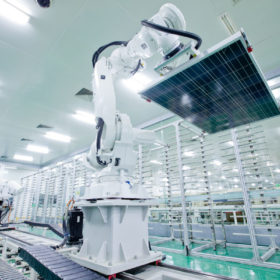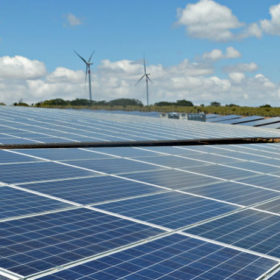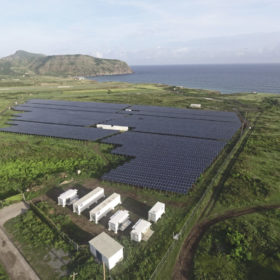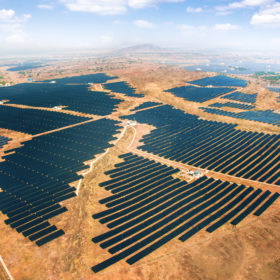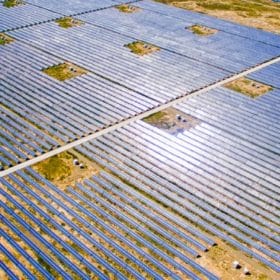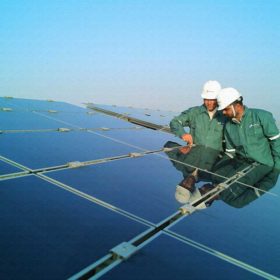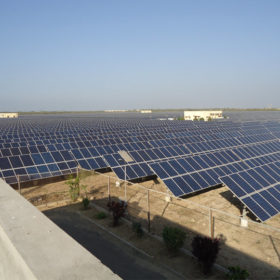JinkoSolar announces 23.01% efficiency for n-type monocrystalline panel
The PV module relies on Jinko’s TOPCon mono cell technology, for which a record efficiency of 24.9% was announced last week. TÜV Rheinland has confirmed the result.
Developers’ body seeks wind-solar hybrid relaxations in Maharashtra’s RE policy
The National Solar Energy Federation has asked the State to consider a 15-year electricity duty exemption, transmission charges on the entire capacity instead of per-kWh basis, and delinking of the secondary RE source capacity from the rated power capacity of the primary RE source to promote hybrid project deployment.
New method to build microgrids based on solar, hydrogen
The use of polymer electrolyte membrane fuel cells as backup power generation in solar microgrids could drive down costs and improve efficiency, according to an international group of researchers. They have proposed a new energy management system that could be ideal for hybrid solar-hydrogen microgrids in remote locations.
Budget expectations for solar manufacturing
The government should consider offering a 50% capital subsidy for setting up R&D and quality testing infrastructure within the manufacturing units and a 200% super-deduction for the R&D expenditure on new and clean solar technology development. Simultaneously, it should look at implementing tariff barriers on imports for at least four-five years.
Adani Green commissions 25 MW solar power plant in Uttar Pradesh
The solar plant in Chitrakoot takes Adani Green Energy’s total operational renewable capacity to 2975 MW—a step closer to its vision of 25 GW capacity by 2025.
Hybrid renewable tariffs unlikely to match PV-specific
Uncertainty around generation compensation in the event of curtailment due to grid safety reasons and the requirement to maintain at least 33% wind project share in the total contracted capacity are among the deciding factors in tariff assessment.
Rajasthan’s second-largest solar park to complete by March 2022
The state—which is already home to 2250 MW Bhadla Solar Park—is on pace to complete a 925 MW Nokh Solar Park in the Jaisalmer district.
Sungrow solar inverter sales in India cross 7 GW
The Chinese manufacturer, which has a central and string inverter factory in Bengaluru, sold a minimum 3 GW of the cumulative sales last year alone. Going forward, it has a strong order book for the upcoming solar capacity too.
Singapore’s Sembcorp awarded 400 MW solar power project in Rajasthan
With this solar win, Sembcorp Industries’ renewables portfolio has swelled to over 3 GW in operation and under development across Singapore, China, and India.
Tata Power to develop 110 MW solar project for Kerala Discom
State Discom Kerala State Electricity Board Limited (KSEBL) will procure the solar electricity generated from the project under a 25-year power purchase agreement.
